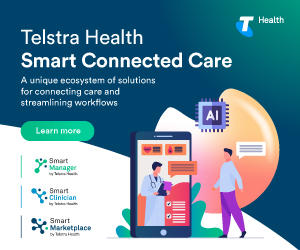How to tackle patient data overload
A surge in patient data volumes is putting healthcare organisations under pressure to find more effective solutions to managing and storing sensitive patient data.
All around Australia, volumes of data is building up in medical centres, hospitals ambulatory clinics and physician practices. One solution to tackle this overload of patient data is cloud-based technology, which allows secure storage and quick access to patient information. Cloud-based systems bring many benefits to healthcare firms – including improved mobility and information access as well as streamlined record keeping among them.
In the US, the 2017 TechTarget purchasing intentions survey, conducted in conjunction with the College of Health Information Management Executives, showed that increased healthcare data storage needs were driving health IT technology purchases at 30 per cent of respondents’ organisations. That number was at 19 per cent just a year earlier.
But despite this trend in the US, in Australia, many healthcare organisations are still struggling to find the best balance between on-site data storage and cloud-based storage, with concerns around cloud outage and security breach remaining as critical barriers to adoption.
The transition to a cloud-based system is no small undertaking and should not under any circumstance be taken lightly, particularly for larger healthcare organisations that are responsible for managing millions of patients’ sensitive data. Such concerns are particularly significant given the Federal Government’s recent cyber security laws, which place more onus on healthcare organisations for data breaches.
Staying secure while adopting cloud technology requires careful planning and ongoing security efforts to ensure that the healthcare organisation can reap the benefits of new technology, while keeping valuable data safe and complying with regulatory requirements.
Once you have determined the security and protection requirements of patient data, take the time to investigate current cloud use by medical professionals and practice staff. You may find some patient data is already being inappropriately stored in the cloud and creating data loss risks previously not known. A complete data management audit before migrating to a secure, managed cloud system will help remove existing data risks and create a more streamlined migration process.
When working with any large amount of confidential data, such as medical records, choosing the right secure, robust cloud-based system is critical to managing sensitive patient information at scale. Importantly, cloud storage will most likely change your legacy-based data visibility and control, so it’s critical to implement new internal policies and procedures to set the fundamental culture of proactive, secure data storage and management across the entire organisation.









